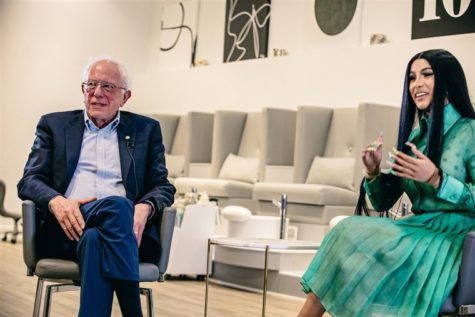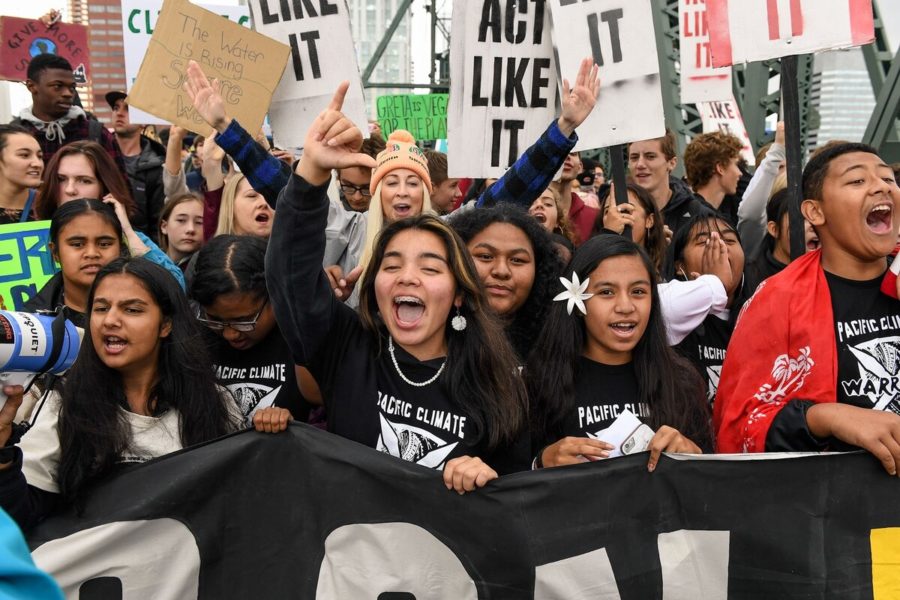Your voice matters
October 20, 2019
Teenagers are often neglected by the political arena. This is because when they are too young to vote, it is easy to feel like the world of politics is closed off to them. As a result, most teens show little interest in the political future of this country. However, teen involvement within politics is essential. According to Step Up magazine, it is critical that teens start developing educated opinions as soon as possible, as one day they are going to inherit the country and make decisions that they will be responsible for. But what should teens do when they are too young to vote on the decisions that affect their day-to-day life? How can teens that are not eligible to vote get involved within the political sphere?
Arguably, the most important act that young people can participate in is being informed. Being educated on national issues, local affairs and views of candidates can go a long way. Mr. Rodriguez, the History Department chairman at Glenbard South High School, said; “Students should consider what issues matter most to them and then educate themselves on the candidates”.
In this way, students know which candidates adhere to their vision the most. In addition to being informed on issues, teenagers should encourage others to participate in the political process, especially those who can vote. Reminding everyone over the age of eighteen to vote, even if they do not necessarily agree with another’s political views, is very important. Indeed, expressing one’s political views should be a right exercised by every American, no matter their beliefs.
Staying involved within politics can also take a more active direction. After doing research, one can join a political campaign of their choosing, and in this way of taking action, one can have a direct role of electing a political candidate of their choice. Teens can also attend rallies and protests in support of candidates. When participating in these social events, teenage judgement is deemed just as important as any adult, which is important because teens’ opinions should be valued, despite them unable to go to the polls. In addition, young adults can speak to candidates directly about their concerns through social media or an old fashioned letter. This demonstrates genuine interest in helping to solve the contentious issues that contribute to the tense political climate of today. Also, ways to actively engage in the voting process can include signing up for text updates or emails and donating to a campaign of choosing.
Moreover, one of the largest influential tools in our modern society is social media, which has been used for political awareness. Speaking about issues that have been important to yourself, calling out unjust behavior, etc. will influence other people to think critically about issues that they had not given much thought to before. Many celebrities on different platforms have taken part in this new era of political advocacy. For instance, Cardi B, a popular rapper, recently did an interview with Democratic political candidate Bernie Sanders in August of 2019. In this interview, she and Sanders discussed controversial issues facing the United States today such as healthcare, education and the rising wealth gap. Cardi B spoke about how she champions youth involvement within politics when she said, “I’m trying to advocate the youth in my community”.
Similarly, internet personalities are also pushing for youth involvement. Liza Koshy, a prominent YouTuber, did an interview with Barack Obama in 2016 to promote the Clinton campaign. In this five minute video, Koshy and President Obama discussed the importance of having the youth involved in elections. In their discussion, they touched on about how making an effort in moving this country in the right direction requires an active voice.
All in all, while voting is important, it is certainly not the only way to effect change. Teens have many resources and ways to be involved in elections and the voting process. This can take the shape of passive participation, such as staying informed, or active participation, like attending local campaign events and raising one’s voice for important causes.































